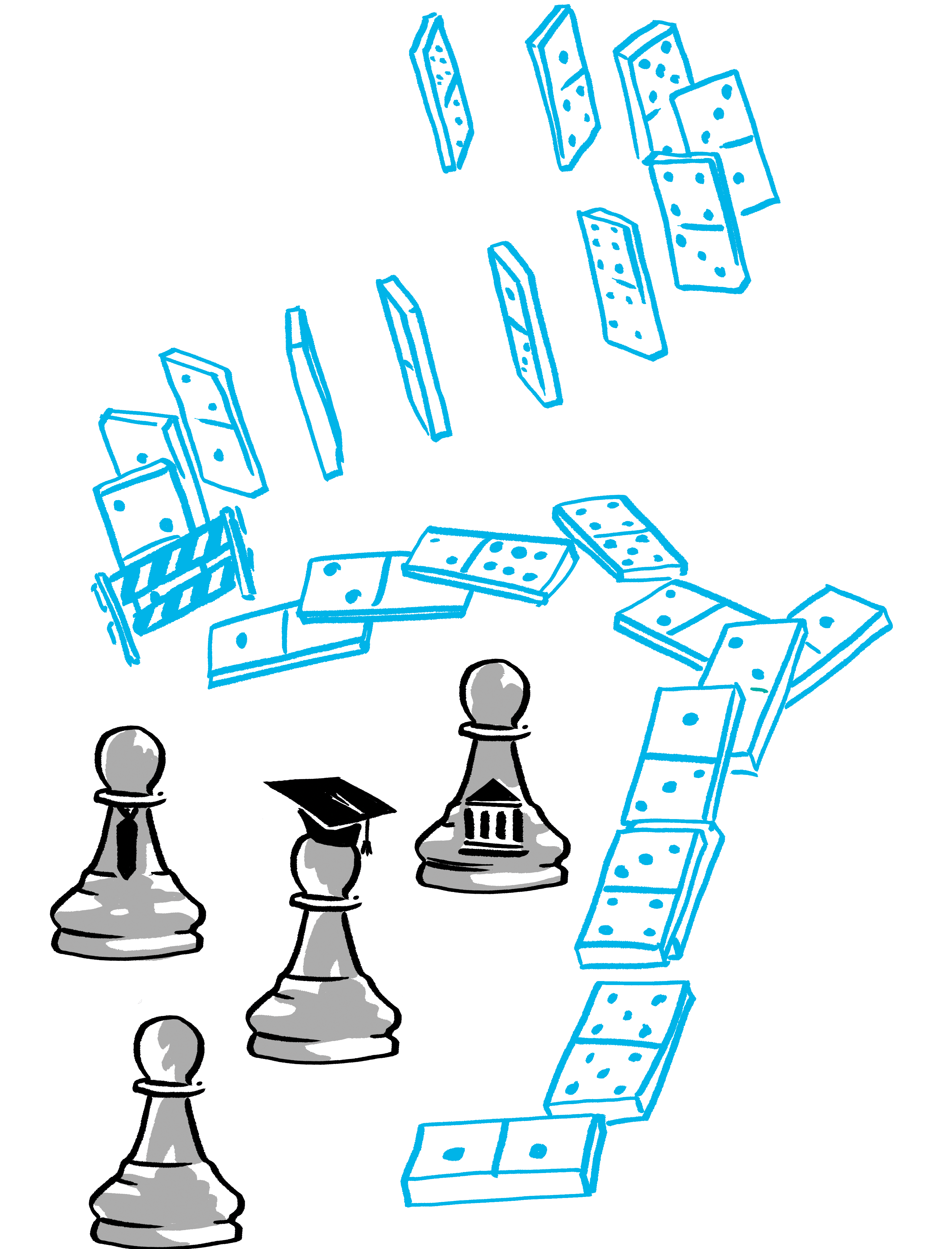- 1. Lack of awareness of mutual competencies
- 2. Differences in vision
- 3. Different institutional structures, logics and norms
- 4. Lack of needs orientation
- 5. Unclear roles and responsibilities
- 6. Spatial and social distance
- 7. Differences in the methodological approach
- 8. Different technical languages
- 9. Lack of trust
- 10. Declining cooperative engagement
- 11. High complexity of outcome measurement
- 12. Lack of permanence and sustainability of project results
1. Lack of awareness of mutual competencies

2. Differences in vision
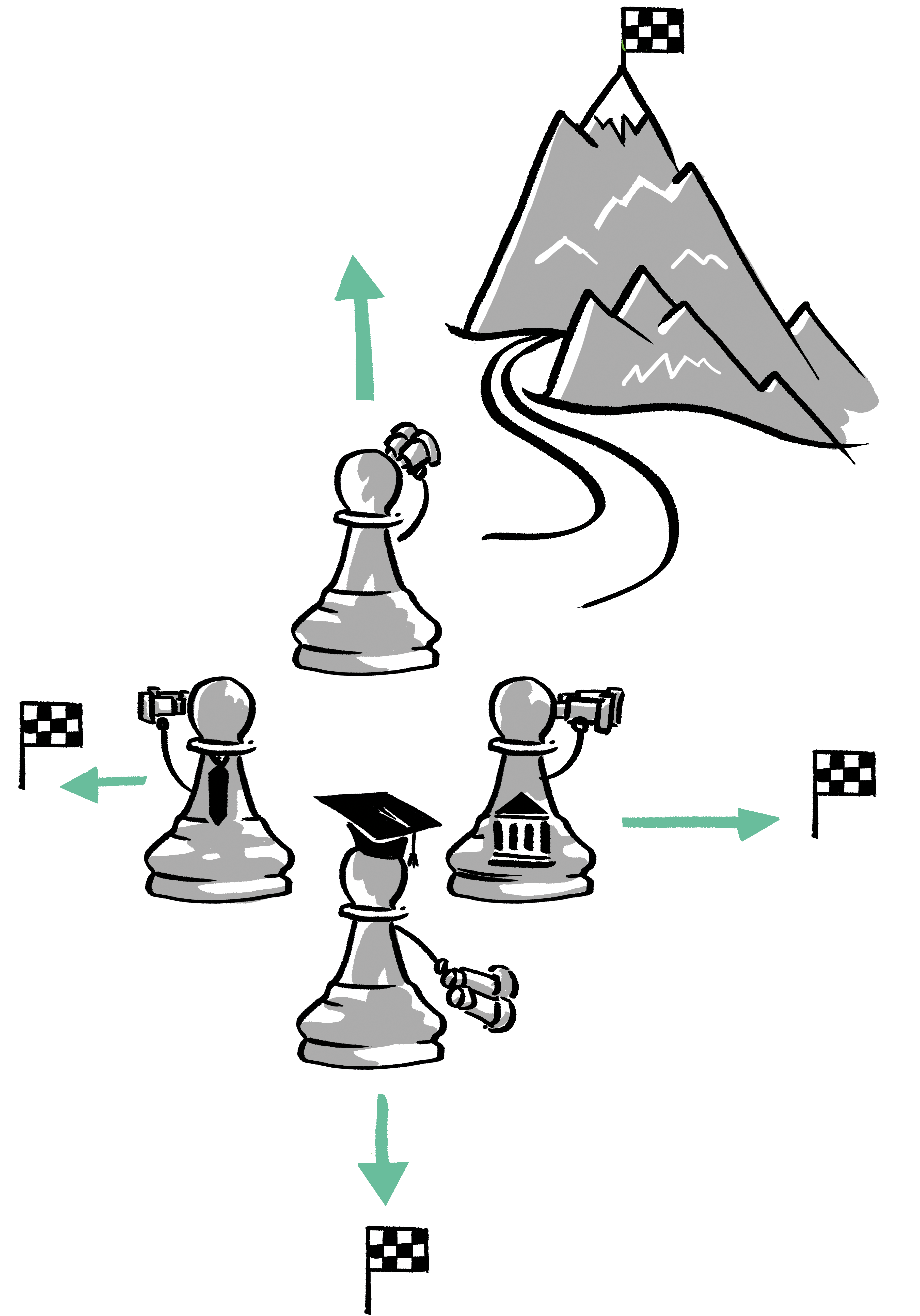
3. Different institutional structures, logics and norms
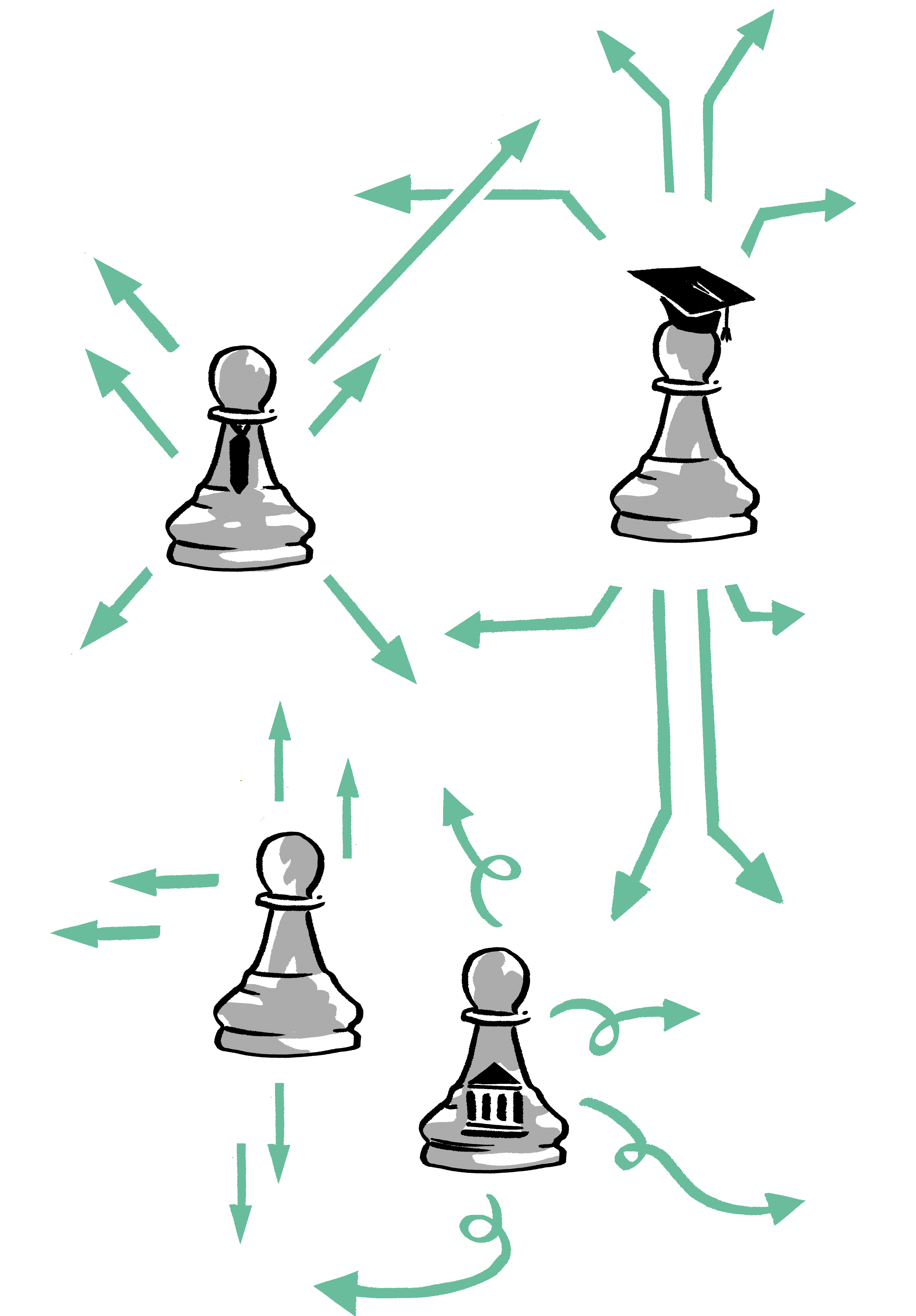
4. Lack of needs orientation
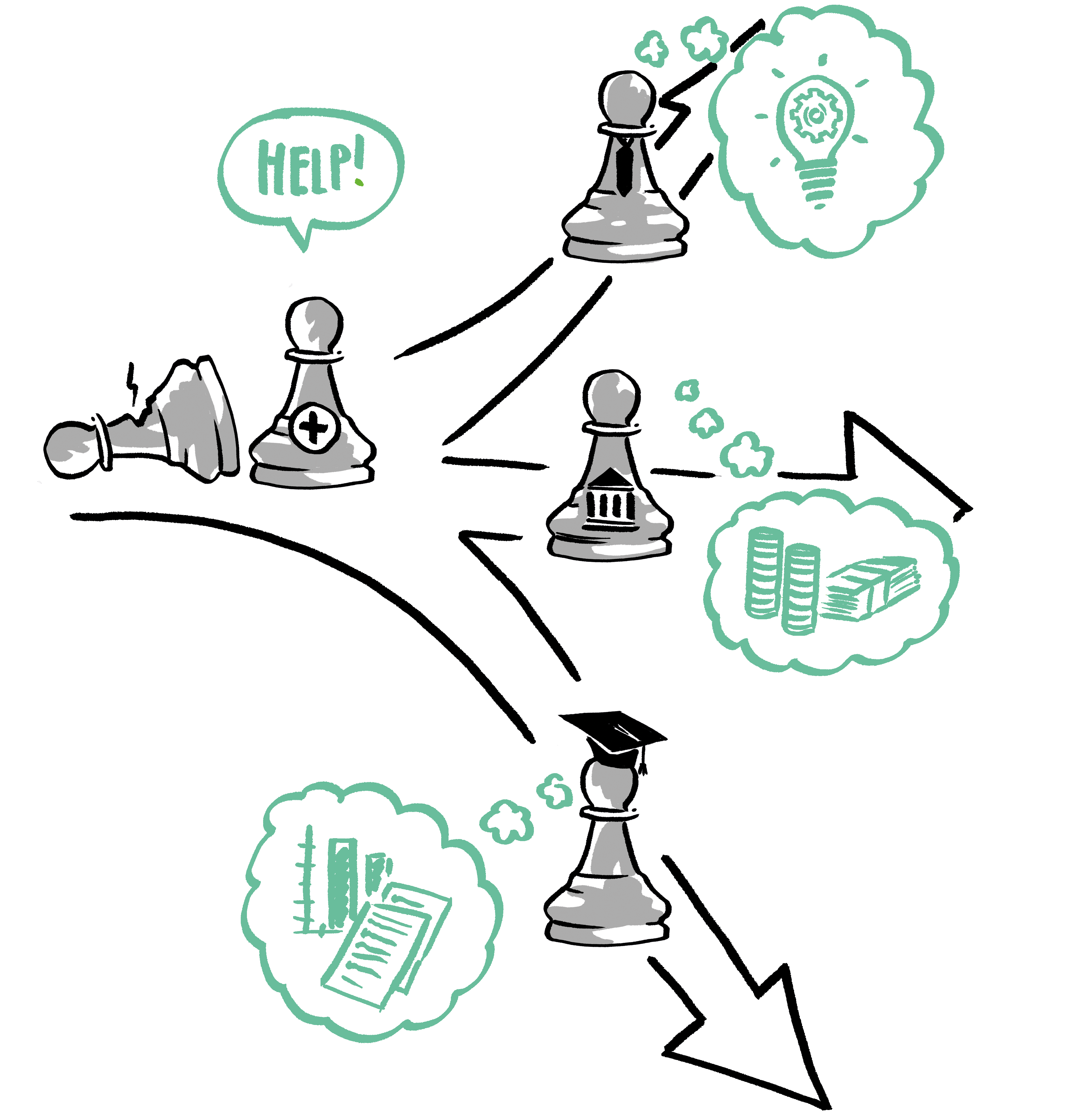
5. Unclear roles and responsibilities
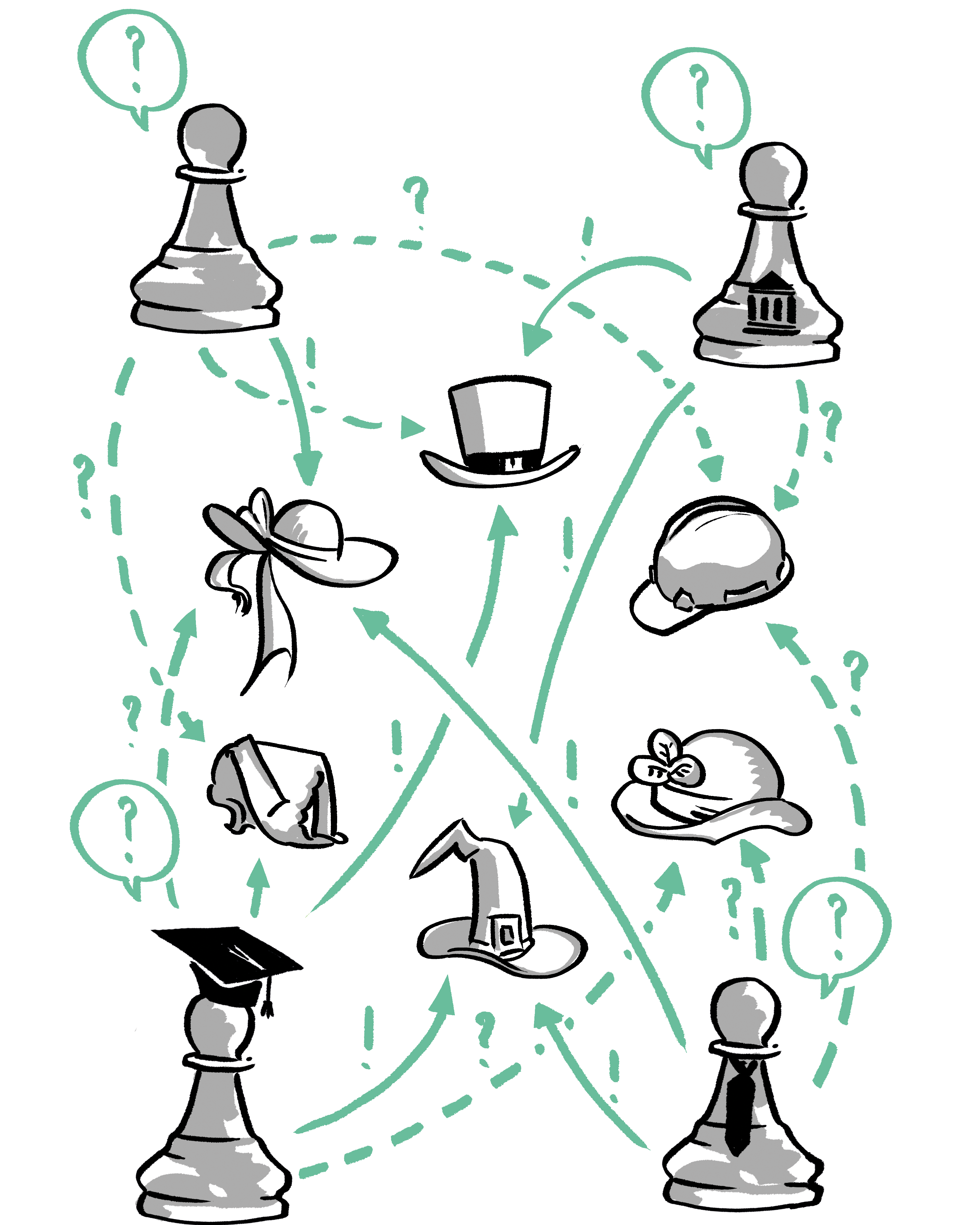
6. Spatial and social distance
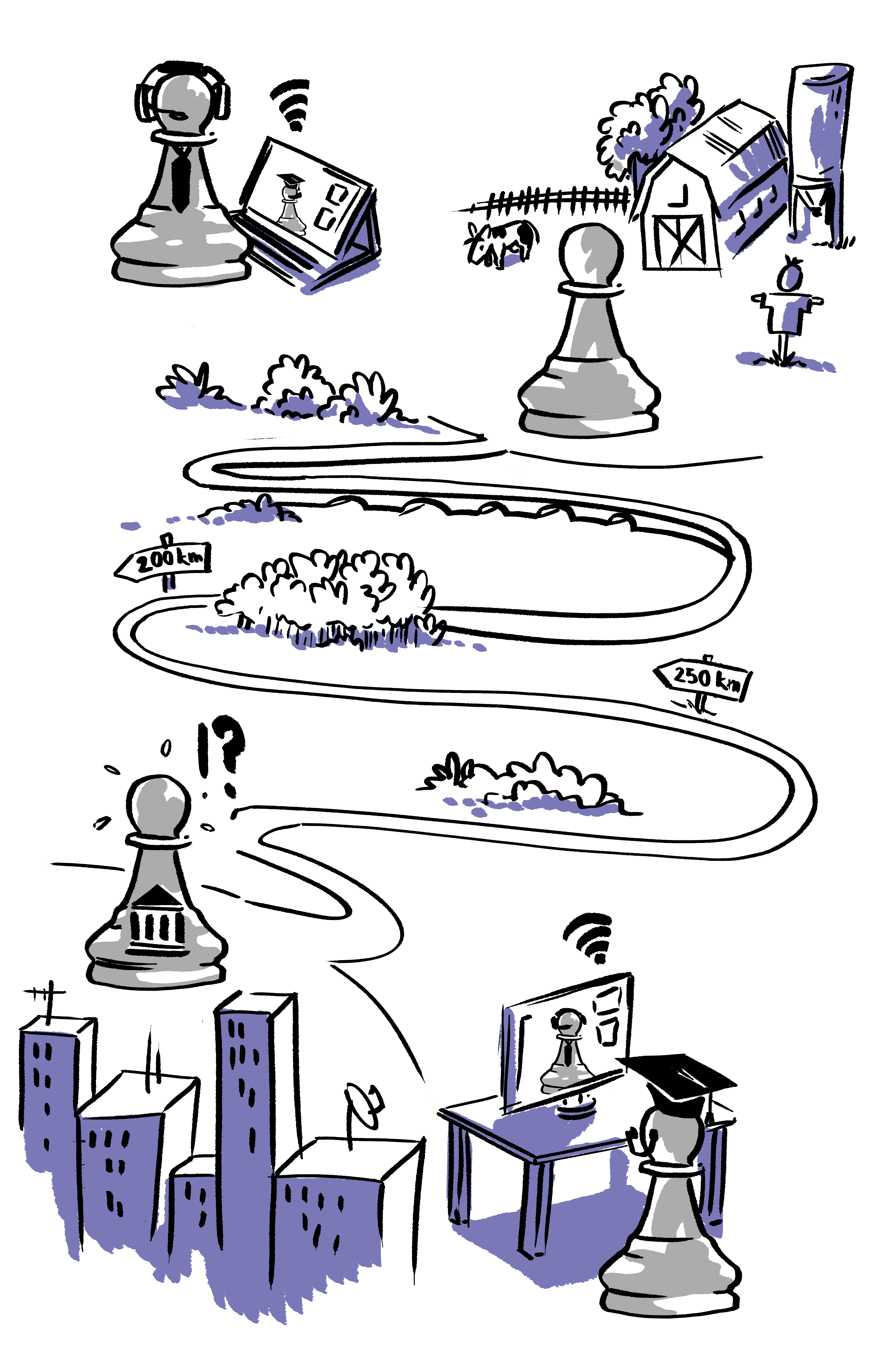
7. Differences in the methodological approach
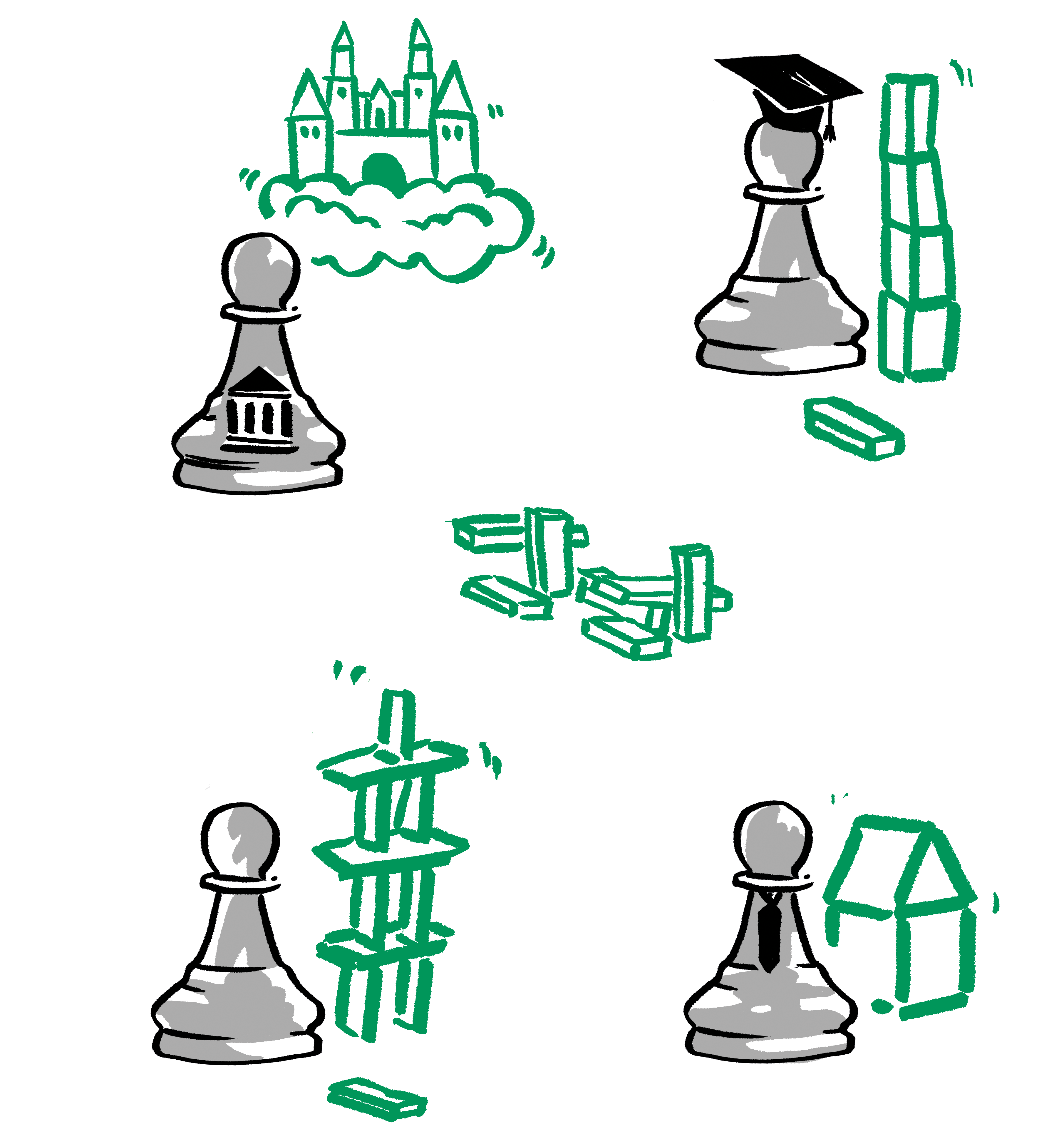
8. Different technical languages
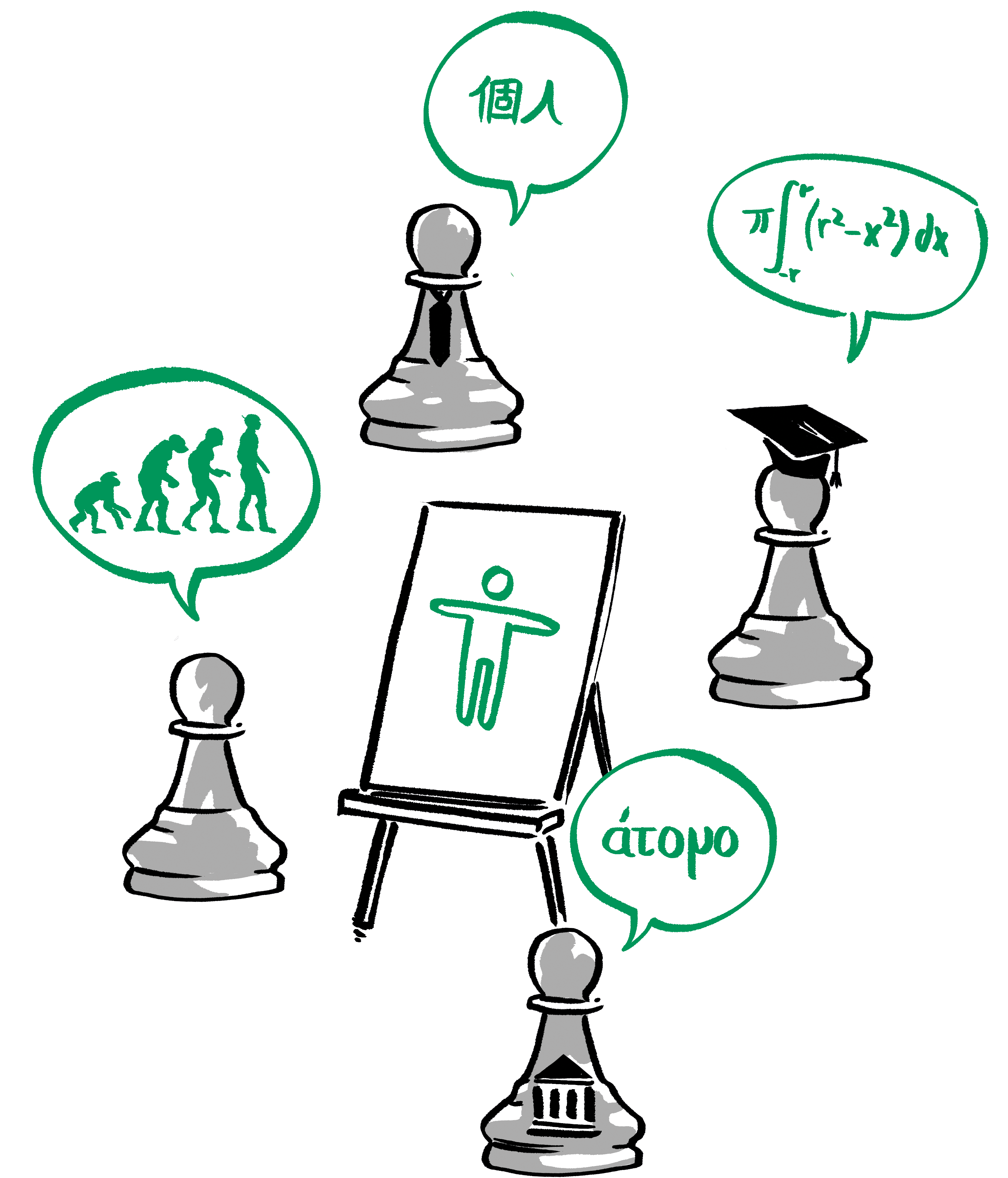
9. Lack of trust
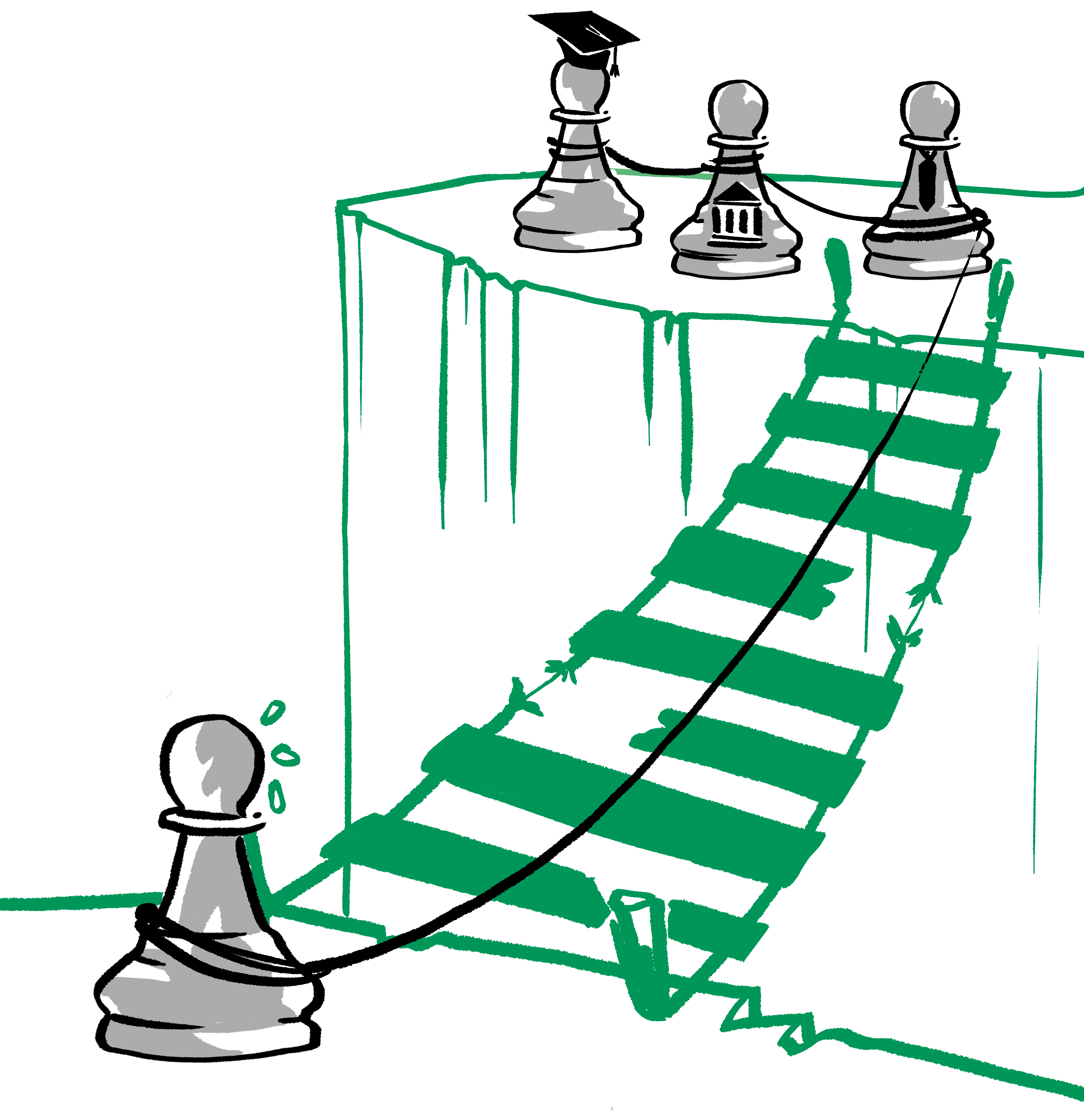
10. Declining cooperative engagement
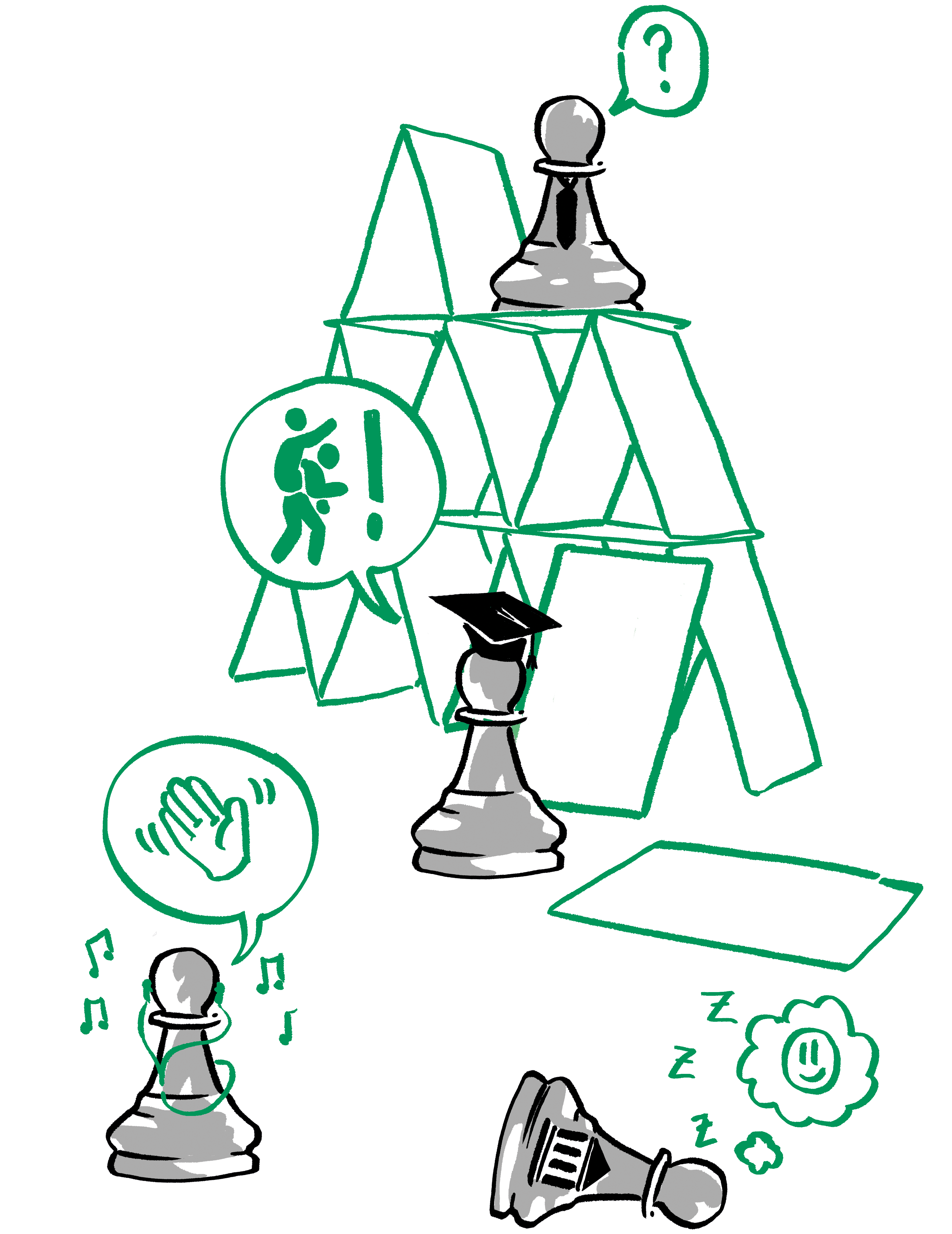
11. High complexity of outcome measurement

12. Lack of permanence and sustainability of project results
